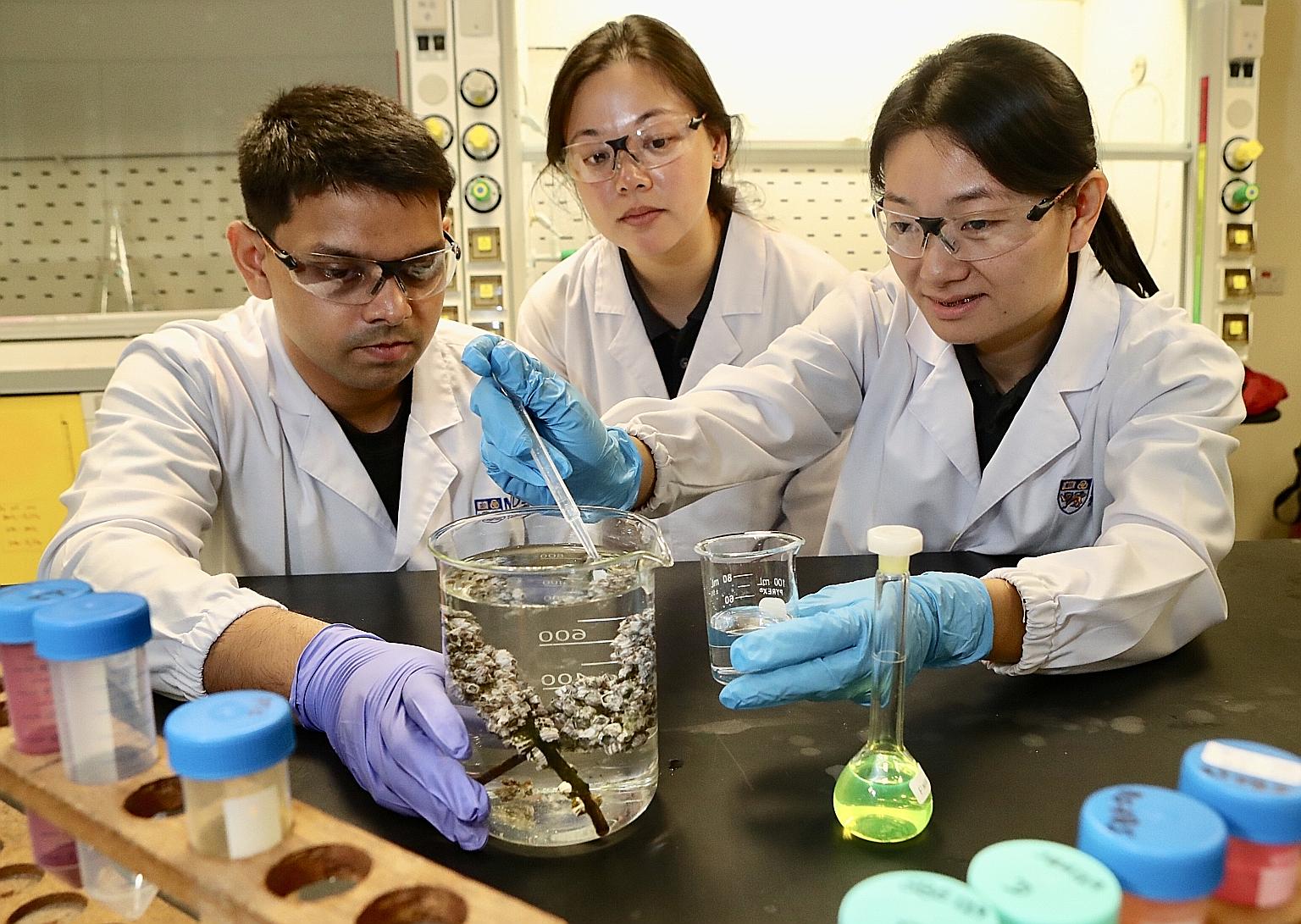Marine life can retain tiny plastic for days, study finds
If such particles carry hazardous chemicals and are eaten, aquatic food chains can be contaminated
Sign up now: Get ST's newsletters delivered to your inbox

National University of Singapore scientists (from left) Samarth Bhargava, Neo Mei Lin and Serina Lee transferring acorn barnacle larvae into a beaker. The acorn barnacle retained tiny plastics from larvae to adulthood, a span of about seven days, the study found.
PHOTO: LIANHE ZAOBAO
Researchers here have found that some marine organisms may be able to retain tiny pieces of plastic in their bodies for several days.
This means if these plastic pieces carry hazardous chemicals and are eaten by these organisms, aquatic food chains could be contaminated if these organisms are, in turn, eaten by others, say researchers.
National University of Singapore (NUS) scientists have found that one particular marine organism, the acorn barnacle, retained tiny plastics from larvae to adulthood, a span of about seven days. Dr Serena Teo, senior research fellow from the Tropical Marine Science Institute at NUS who co-supervised the study, said at a media briefing yesterday: "Hazardous chemicals can be absorbed by the particles. So when the particles are eaten, they can be transferred... to the organism."
The 11/2-year research, which started in November 2016, aimed to track the accumulation and retention of nanoplastics in marine organisms throughout their lifespans.
Nanoplastic particles, which are less than one micrometre in size, are about a thousand times smaller than the plastic beads in facial scrubs and toothpastes.
The research team incubated the barnacle larvae in solutions of high and low concentrations of non-toxic nanoplastics and their regular feed. In both cases, nanoplastics were found to have accumulated throughout the entire body of the larvae until adulthood.
The study was funded under the National Research Foundation Singapore's Marine Science Research and Development Programme. The findings were published online in March in science journal ACS Sustainable Chemistry & Engineering.
The team hopes to use the study to further understand the pathways of such plastic particles in the marine ecosystem, including the potential of these nanoplastics to move up the food chain.


